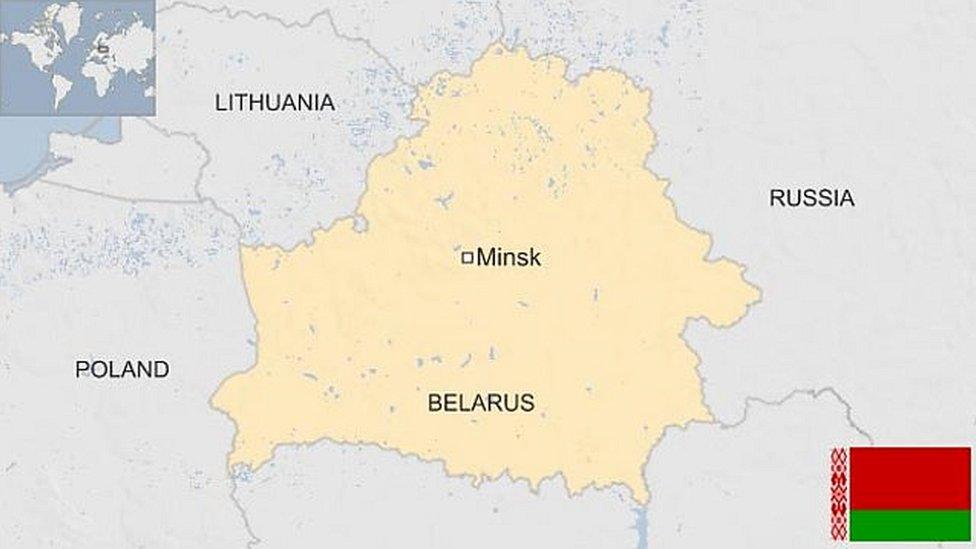Belarus president set to win fifth consecutive election
- Published
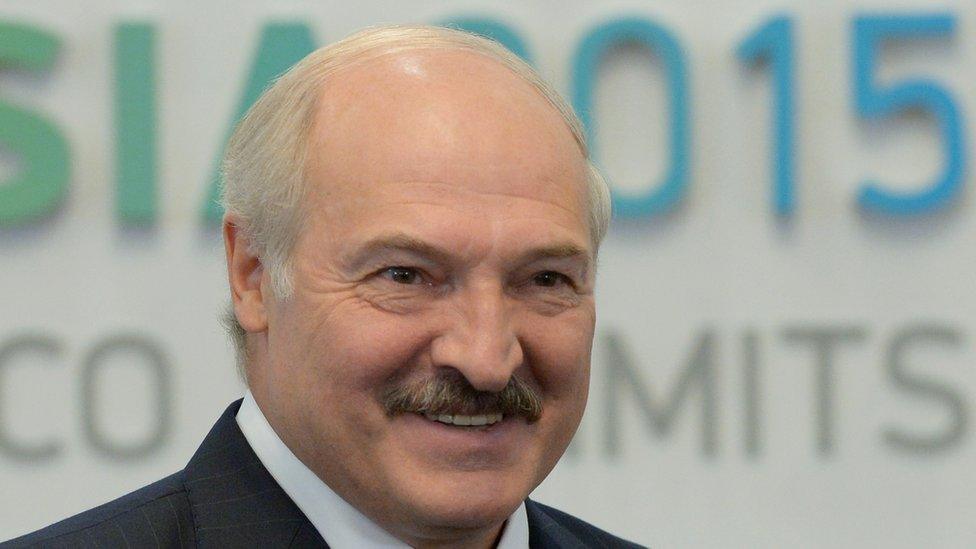
President Lukashenko is set to be returned to power after Sunday's elections
Presidential elections will be in held in Belarus this Sunday. But few doubt that the incumbent Alexander Lukashenko will be returned to power, having won every other contest in a process that was widely accused of being unfair and undemocratic.
When you are short of any other means of attracting attention, then you sing. That at least was the approach taken at a rally by the Belarusian opposition party "Speak the Truth." Many of its applications to hold public meetings were turned down, a spokesman told me, so when they had the chance to meet in one of the smallest squares in the city of Minsk, the Party was determined to drum up an audience.
A guitar and violin duet belted out songs of protest, a warm-up man invited people to come and hear their Presidential candidate, Tatsiana Karetkevich, make a speech. But in the end, there were fewer than a dozen in the audience.
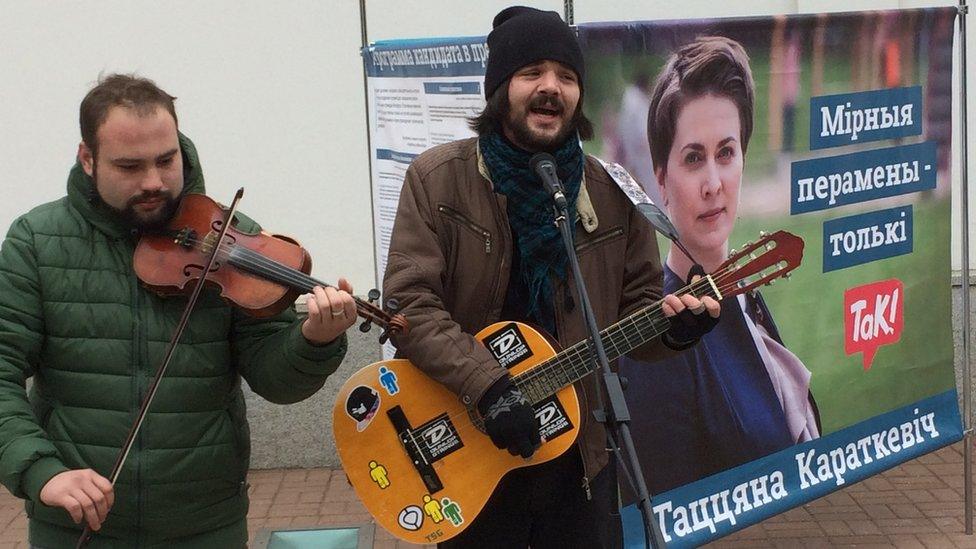
Opposition parties say the Belarusian authorities are frustrating opposition campaigning efforts
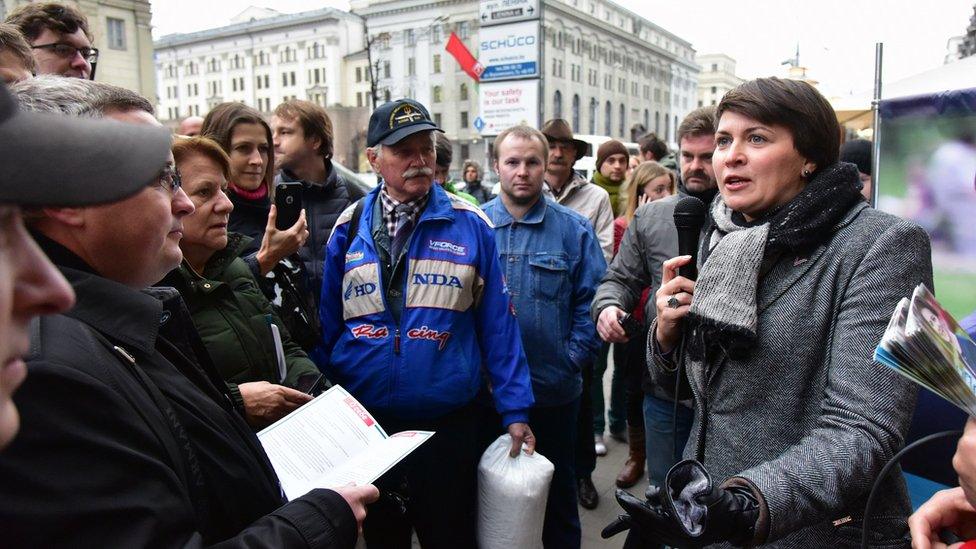
Tatsiana Karetkevich is the only female challenger to the incumbent
As far as the party Chairman Andrey Dimitriev is concerned, the fault lies with the Belarusian authorities.
They and their leader, the current President Alexander Lukashenko, stand accused of preventing opposition parties from building any public profile: "If you go to state businesses or to universities, you will find great big posters for Lukashenko," he complains, "there are no posters for other candidates."
Opposition parties have also been granted far less access to the all-powerful state-owned media, Dimitriev says.
That suggestion is certainly backed up by the many human rights campaigners and other international organisations that have investigated the state of Belarusian democracy.
Journalists and critics of the government are regularly locked up, according to Amnesty International. And the United Nations special rapporteur on Belarus found there were "serious limits on the media, and on free association."

Belarus profile
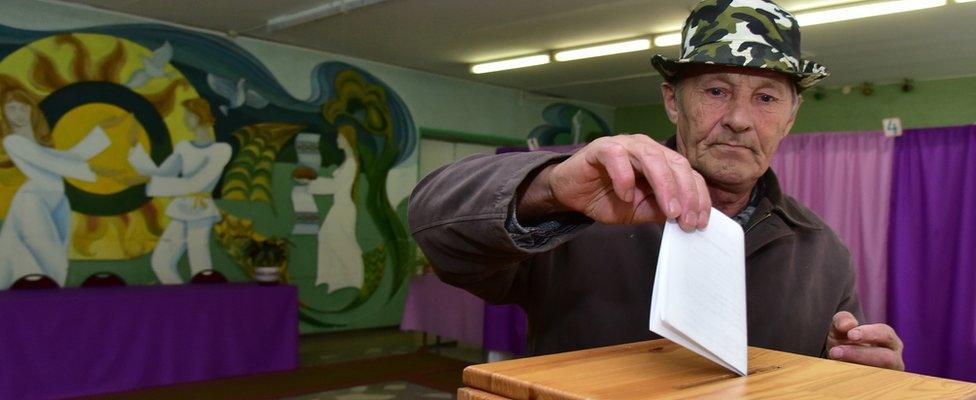
Belarus is preparing for presidential elections to be held on Sunday
Belarus, with its seven million voters, is holding its fifth presidential election in 21 years, but so far has had only one president - Alexander Lukashenko.
Lukashenko, who has not polled less than 75% in any of the previous votes, is likely to be declared the winner again.
Among the three challengers to the incumbent, two are regarded as "technical" pro-Lukashenko candidates.
The only woman in the quartet, Tatsiana Karatkevich, is an opposition activist now disowned by almost all opposition parties except her own 'Tell the Truth' movement.
The opposition fears that Karatkevich's bid will be used to create a semblance of plurality and to legitimize Lukashenko's re-election in the eyes of the West.
The opposition has failed to agree a single candidate and is now "ignoring" the vote, which it says will be neither free nor fair. Calling a boycott would be illegal under Belarusian law.
No plans for any post-election demonstrations, similar to the "Square" in December 2010, have been announced, so any large-scale protests are unlikely.

Last time they held a presidential contest in Belarus, in 2010, seven of the nine presidential candidates were arrested; one of them was only released this year following widespread international pressure. The candidates were accused of various offences, including the encouragement of violent protest and attempting to overthrow the state.
This punishment is normal, I was told by Sergei Kizman, a professor of politics in Minsk, and a supporter of the government position.
"If anyone in Great Britain declared they were the real government and attacked public buildings, they would go to prison."
He told me that Belarus is only criticised because it has no oil.
"Saudi Arabia has no elections at all, but their King is welcomed in London and Berlin," he complained.
Even some of President Lukashenko's most staunch critics will admit the man is popular, if not as popular as voting figures might suggest.
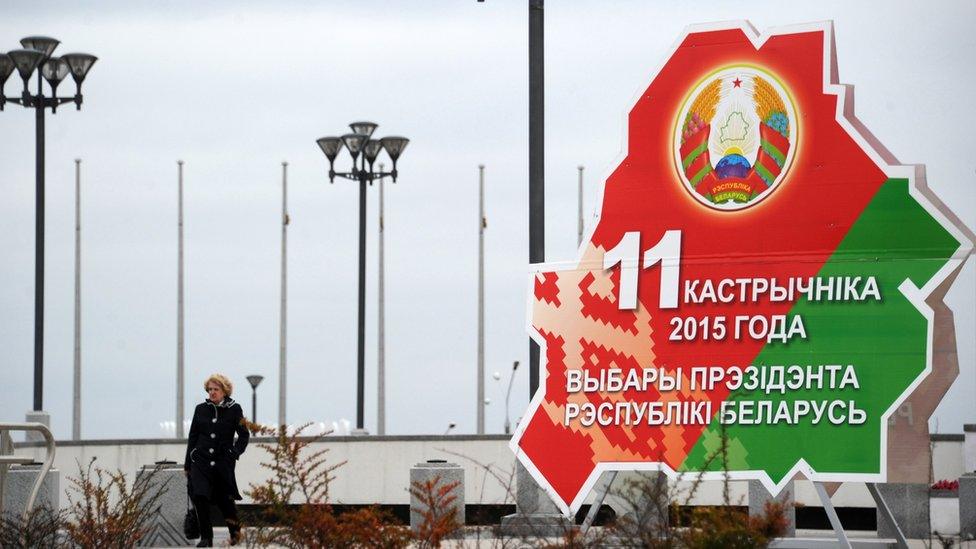
A Belarussian presidential election banner announces the upcoming 11 October presidential elections
"Unemployment is low, health care is free - it's a functional country," says Alexei Pikulik, Director of a think-tank, the Belarusian Institute for Strategic Studies.
Pikulik has himself suffered at the hands of Lukashenko's regime, arrested for his work and at one point driven into exile. But he believes that in the wake of Russia's intervention in Ukraine, most people in Belarus just want a quiet life, with no risk of conflict.
"The main platform on which Lukashenko is standing is 'with me, Belarus will be a stable, independent country,'" he says.
Belarus has been accused of faking election results, failing to allow proper scrutiny of the vote counting process. But whether or not there is ballot box skulduggery, no one believes there will be any result other than an Alexander Lukashenko victory this time. The man once dubbed "Europe's last dictator" seems determined to stick around for some time yet.
- Published27 January
